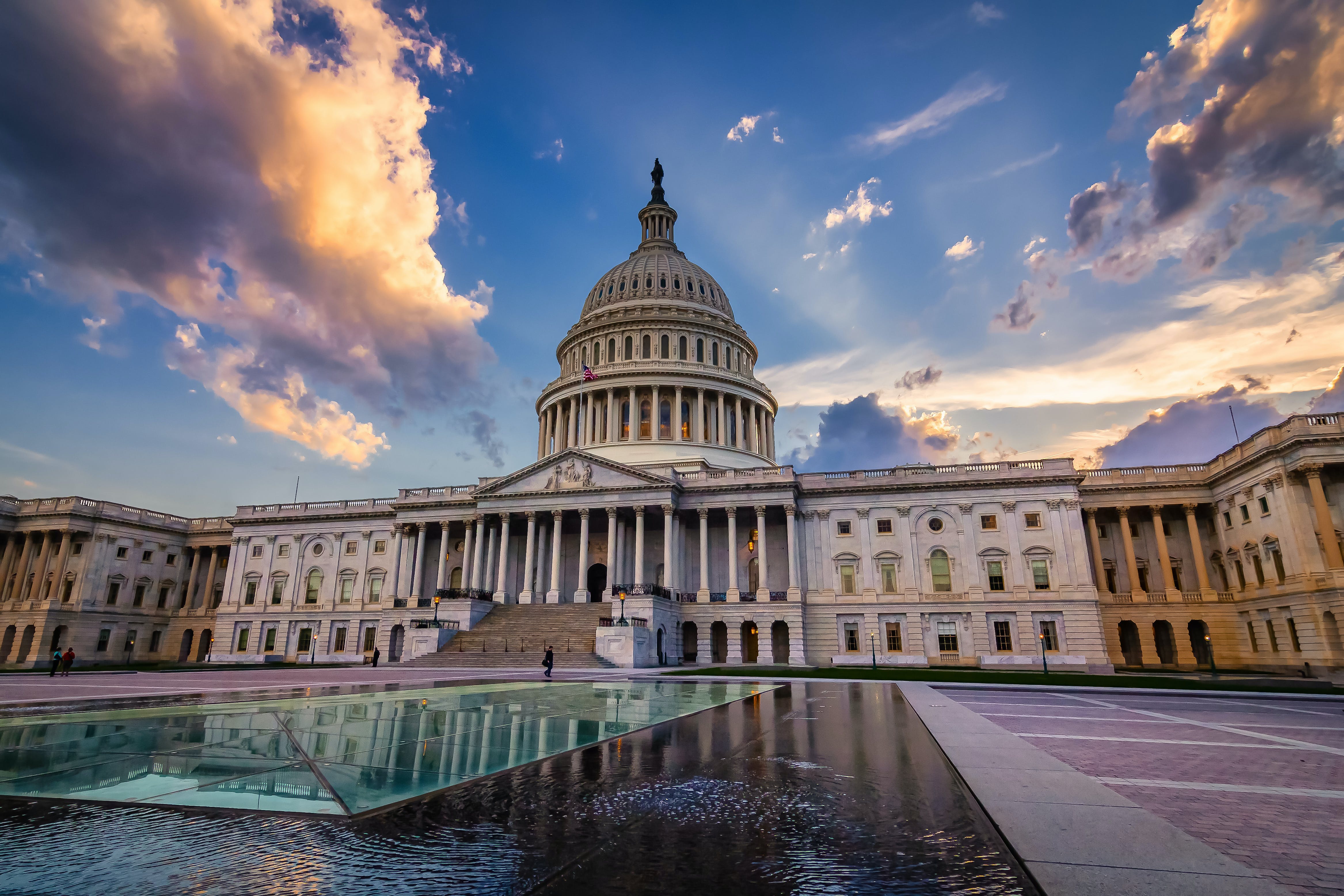-
Federal Legislative Update
-
Federal Legislative Update
Primacy Strategy GroupFriday, December 10, 2021
SUMMARY
This memo has been prepared to provide an update on the current legislative and political lay-of-the-land in Congress and the federal government. The memo includes a general update on Congressional activities as well as an update on FMWF federal priorities.
CONGRESSIONAL UPDATE
Bipartisan Infrastructure Bill - Infrastructure Investment and Jobs Act
Last month historic action was taken to make the largest investment in American infrastructure in more than a half century. On Monday, November 15, President Biden signed H.R. 3684, the “Infrastructure Investment and Jobs Act” (IIJA), into law after months of negotiations. The bipartisan legislation passed the House on a 228-205 earlier in November and passed the Senate on a 69-30 vote last August.
The IIJA will invest $973 billion in infrastructure over the next five years (FY2022-FY2026) which includes an increase of $550 billion in new federal investment in America’s roads and bridges, water infrastructure, resilience, internet, cybersecurity and more. Approximately 52% of investments will be directed toward modernizing and making improvements to transportation infrastructure such as highways, roads, and bridges.
Below is a list of the funding that North Dakota is expected to receive from the Bipartisan Infrastructure Bill.
- Roads & Highways: $1.7 billion
- Bridges: $225 million
- Broadband: $100 million
- Public Transportation: $109 million
- Water Infrastructure: $355 million
- Airports: $94 million
- Cybersecurity: $11 million
- Wildfire Protection: $21 million
- Electric Vehicle Charging Networks: $26 million
Below is a list of the funding that Minnesota is expected to receive from the Bipartisan Infrastructure Bill.
- Roads & Highways: $4.5 billion
- Bridges: $302 million
- Broadband: $100 million
- Public Transportation: $818 million
- Water Infrastructure: $680 million
- Airports: $297 million
- Cybersecurity: $17 million
- Wildfire Protection: $20 million
- Electric Vehicle Charging Networks: $68 million
Debt Ceiling Will Be Raised
As of the morning of Thursday, December 9, the Senate was set to take up a one-time loophole to allow Democrats to raise the debt limit on their own, a major step toward warding off mid-December economic fallout.
The chamber will consider the initial 60-vote hurdle midday. At least 10 Republican senators are expected to vote in support, setting in motion the deal Senate Minority Leader Mitch McConnell struck with Majority Leader Chuck Schumer to prevent the United States from defaulting on its more than $29 trillion in debt as soon as next week. From there, final passage on the debt ceiling workaround is expected to follow by the end of the week when the House and Senate plan to approve the final legislative procedure needed to raise the debt limit - this vote will only require a majority in both chambers, meaning that it will be passed almost exclusively by Congressional Democrats.
While Democrats have yet to divulge a dollar amount, the new ceiling is expected to exceed $30 trillion, to ensure Congress won't need to act again until after the midterm elections next November.
Build Back Better Act
On Friday, November 19, the U.S. House passed the Build Back Better Act (H.R. 5376) - a $2 trillion spending package that will expand social benefits to millions of Americans. The Build Back Better Act passed the House on a vote of 220-to-213. The House-passed bill would pave the way for the greatest expansion of federal child care assistance in history, seeking to fund free, universal prekindergarten for all American children aged three and four. Targeting health care, the measure offers new Medicare benefits covering hearing services and empowers the government for the first time to negotiate some prescription drug prices, aiming to lower the costs that seniors pay for lifesaving medicines such as insulin.
But the $2 trillion proposal still must survive a political slog in the days ahead as it makes its way through the U.S. Senate. Senate moderates, particularly Senator Joe Manchin III (D-WV) and Senator Kyrsten Sinema (D-AZ), have harbored skepticism about its price tag and policy scope and could further seek to pare back its provisions. Though importantly, Senate Majority Leader Chuck Schumer (D-NY) has expressed confidence that the Senate will ultimately be able to pass the legislation and indicated that he’d like it to be done before the end of the year. Moreover, House Speaker Pelosi in heralding the bill after its passage also spoke confidently about being able to reconcile any potential differences with whatever legislative changes may occur as the bill is debated and passed by the Senate.
While many Congressional Democrats remain optimistic that they will be able to pass the legislation before the end of the year, moderate Senate Democrats have signaled that is unlikely due to the limited timeframe and have indicated that they think that if the legislation passes the happen.Tell a Friend
-
A catalyst for growth and prosperity.

